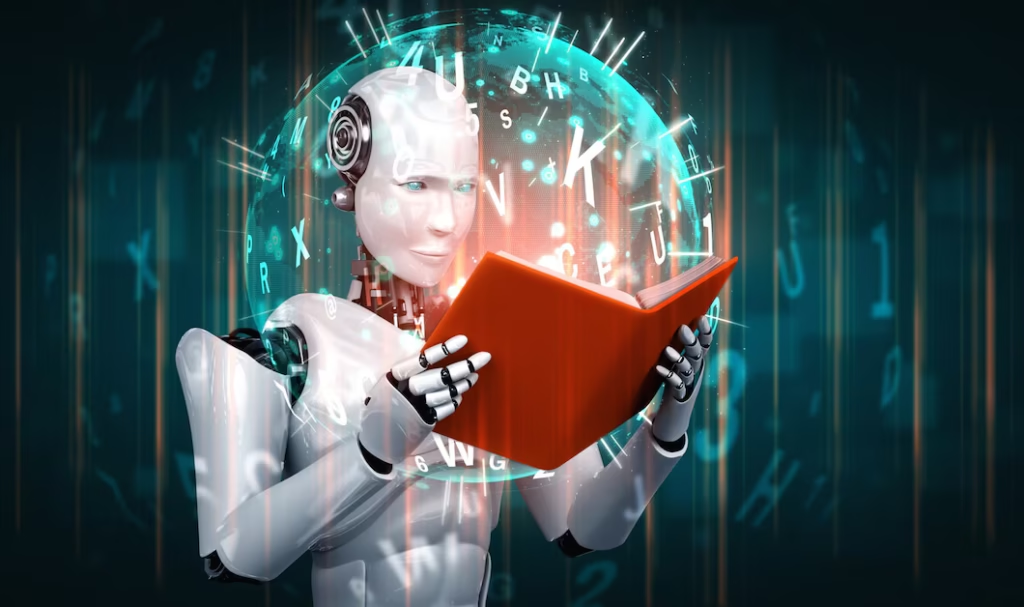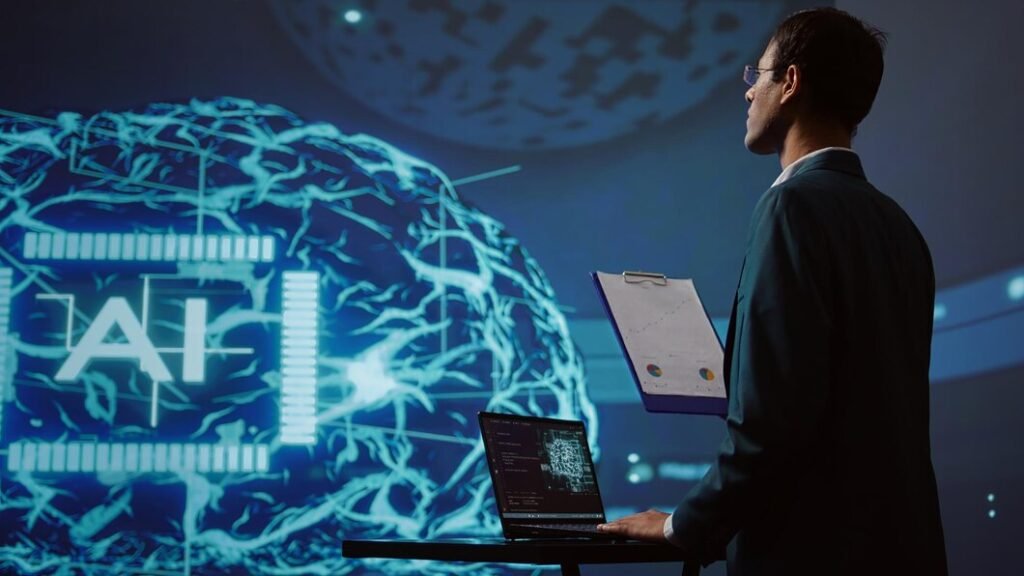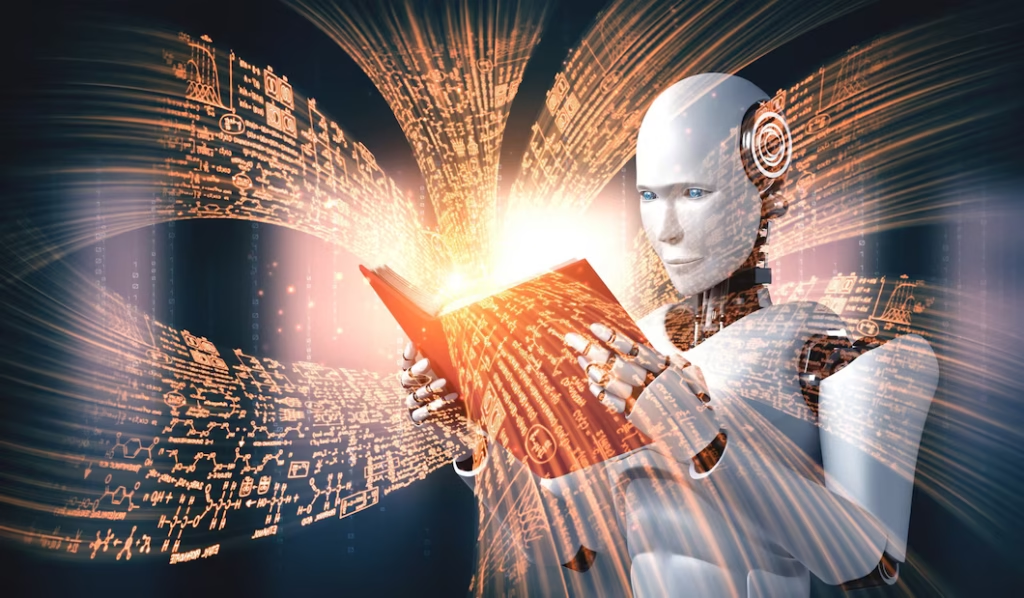Introduction
Man-made brainpower (simulated intelligence) and AI have advanced quickly as of late, prompting pivotal improvements across businesses. Be that as it may, as simulated intelligence turns out to be more incorporated into day AI ethics to day existence, it brings up significant moral issues and difficulties. AI calculations are currently equipped for performing errands once remembered to be the sole ethical machine learning space of people, from dynamic in medical services to anticipating criminal way of behaving. While these advancements bring huge advantages, they likewise present dangers with respect to protection, reasonableness, responsibility, and straightforwardness. Addressing the moral worries of man-made intelligence is vital to guaranteeing that the innovation responsible AI development is utilized capably. This article investigates the difficulties of simulated intelligence morals, the arrangements being proposed, and the job of administration in managing AI.
The Problem of Bias in AI Systems
Perhaps of the main moral worry in simulated intelligence is the potential for predisposition in AI models. Since computer based intelligence AI ethics calculations are prepared on authentic information, they can accidentally learn and sustain the predispositions present in the information. This issue is especially basic in applications, for example, recruiting, loaning, law enforcement, and medical services, responsible AI development ethical machine learning where one-sided calculations could bring about prejudicial results. For instance, a computer based intelligence framework prepared on one-sided employing information could unreasonably lean toward up-and-comers from specific segment gatherings, while an AI calculation utilized in condemning could excessively target people from minority foundations.
Tending to man-made intelligence predisposition requires guaranteeing that preparing information is different, delegate, and liberated from authentic disparities. This issue is especially basic in applications, for example, recruiting, loaning, law enforcement, and medical services, responsible AI development ethical machine learning where one-sided calculations could bring about prejudicial results.
Privacy Concerns
Security is one more major moral test in simulated intelligence. Many AI frameworks require immense measures of information to AI ethics work successfully, yet this information frequently contains delicate data about people,responsible AI development ethical machine learning like their ways of behaving, inclinations, and wellbeing records. While the utilization of huge information can improve the precision and execution of simulated intelligence models, it likewise raises worries about information breaks, observation, and unapproved access. Moral man-made intelligence improvement should focus on the insurance of individual protection, with systems to guarantee that people’s information is utilized mindfully and safely. Arrangements like information anonymization, client assent responsible AI development conventions, and hearty encryption techniques are critical to guaranteeing that man-made intelligence innovations regard protection.
Accountability and Transparency in Machine Learning
AI models are frequently alluded to as “secret elements” since they can make choices without giving understood, justifiable thinking AI ethics for their decisions. This absence of straightforwardness is a huge moral issue, especially in high-stakes circumstances like clinical conclusions, independent vehicles, ethical machine learning or monetary frameworks. In the event that an AI calculation pursues a mistaken or unsafe choice, it tends to be hard to figure out who is capable or the way in which the choice was made. To address this, there is a developing call for “reasonable man-made intelligence” (XAI) that gives bits of knowledge into how models arrive at their decisions. Laying out clear responsibility structures, where engineers, associations, and administrative responsible AI development bodies are considered answerable for artificial intelligence results, is basic for keeping up with public trust and guaranteeing moral artificial intelligence organization.
The Ethical Implications of Automation and Job Displacement
Artificial intelligence controlled robotization can possibly supplant numerous human positions, especially in fields like assembling AI ethics, transportation, and client assistance. While computerization can increment proficiency and diminish costs, it additionally raises huge moral worries with respect to work uprooting and financial disparity. As man-made intelligence keeps on developing, it is fundamental to ethical machine learning consider the social and financial effects on specialists who might lose their responsibilities to machines. Legislatures, organizations, and instructive responsible AI development establishments should cooperate to give retraining and upskilling chances to uprooted laborers, guaranteeing that the advantages of computer based intelligence don’t come to the detriment of the labor force.
Balancing Innovation with Patient Safety
The utilization of computer based intelligence in medical services presents both colossal open doors and serious moral quandaries. AI ethics can help specialists in diagnosing illnesses, customizing treatment designs, and foreseeing patient results with high exactness. In any case, depending on computer based intelligence for clinical dynamic raises worries about understanding security, informed assent, ethical machine learning and the potential for mistakes. In the event that a computer based intelligence model makes a misdiagnosis or neglects to represent a patient’s remarkable conditions, the results could life-compromise. To alleviate these dangers, artificial intelligence frameworks in medical services should be entirely tried and approved, with clear rules for their utilization in clinical settings. Moreover, moral contemplations should guarantee responsible AI development that patients are completely educated about how man-made intelligence is being utilized in their consideration and agree to its application.

AI and Human Rights
Man-made intelligence can possibly both help and subvert common freedoms. On one hand, simulated intelligence can AI ethics further develop admittance to schooling, medical care, and social administrations, helping underestimated networks. Then again, while perhaps not painstakingly directed, simulated ethical machine learning intelligence frameworks could support existing imbalances and make new types of separation. For instance, simulated intelligence utilized in law enforcement frameworks could unjustifiably focus on specific racial or ethnic gatherings, or prescient responsible AI development policing apparatuses could excessively influence low-pay areas. To address these difficulties, it is urgent to carry out moral rules that guarantee simulated intelligence advances reasonableness, uniformity, and equity. Basic liberties standards should be coordinated into the plan, sending, and guideline of simulated intelligence frameworks to forestall hurt and safeguard weak populaces. Then again, while perhaps not painstakingly directed, simulated ethical machine learning intelligence frameworks could support existing imbalances and make new types of separation.
The Impact of AI on Decision-Making and Autonomy
As simulated intelligence frameworks become more equipped for deciding, concerns emerge about their effect on human AI ethics independence and independent direction. Now and again, simulated intelligence might be utilized to impact people’s decisions, like through customized ads, virtual entertainment calculations, ethical machine learning or credit scoring frameworks. While these applications can be helpful, they additionally bring up issues about control, assent, and control. It is fundamental to guarantee that man-made intelligence is utilized such that regards people’s independence responsible AI development and permits them to pursue informed choices without excessive impact. Straightforwardness in artificial intelligence dynamic cycles, as well as clear client assent approaches, can assist with relieving these dangers.

The Ethics of AI in Warfare and Security
Artificial intelligence’s possible use in military and security applications is an exceptionally questionable moral AI ethics issue. Independent weapons frameworks, reconnaissance robots, and artificial intelligence fueled digital protection devices all raise worries about responsibility, control, and the potential for accidental ethical machine learning heightening. The possibility of machines settling on life-and-passing choices without human mediation challenges conventional moral structures in fighting. The turn of events and utilization of artificial intelligence in military settings should comply with responsible AI development worldwide regulations and moral norms, like those laid out by the Geneva Shows. Moral rules should guarantee that simulated intelligence in fighting is utilized to limit hurt, regard human poise, and keep up with responsibility.
Developing Ethical AI Frameworks
To resolve the complex moral issues encompassing computer based intelligence, state run administrations, associations, AI ethics and global bodies should lay out powerful administration systems. Administrative endeavors are now in progress in numerous nations, with some upholding for extensive computer based ethical machine learning intelligence guidelines that guarantee wellbeing, straightforwardness, and decency. These structures can incorporate rules for the moral plan, organization, and checking of man-made intelligence frameworks, as well as systems for responsibility and public oversight. Worldwide collaboration is fundamental to make steady guidelines that safeguard responsible AI development people’s privileges and advance moral computer based intelligence use on a worldwide scale. Besides, as artificial intelligence keeps on developing, administrative bodies should stay adaptable and versatile, guaranteeing that new moral worries are tended to quickly.
Conclusion
As man-made intelligence keeps on propelling, it is urgent that moral contemplations stay at the front AI ethics of improvement. The difficulties related with inclination, security, responsibility, and occupation removal can’t be overlooked assuming computer based intelligence is to be utilized for everyone’s benefit. By creating straightforward, fair, and responsible frameworks, society can saddle the force of AI while ethical machine learning limiting its likely dangers. Cooperation among man-made intelligence engineers, controllers, and the public will be critical to making a future where computer based intelligence fills in as a positive power for development and human prosperity. The continuous discourse around simulated intelligence morals will shape responsible AI development the eventual fate of innovation and decide the way things are utilized to address a portion of mankind’s most squeezing difficulties.


